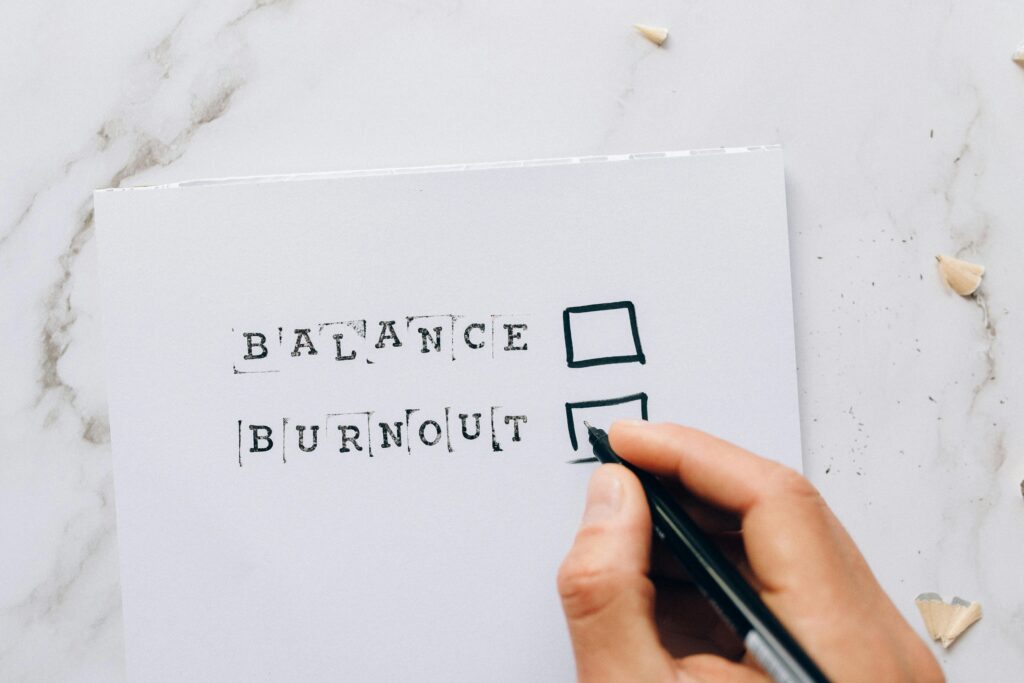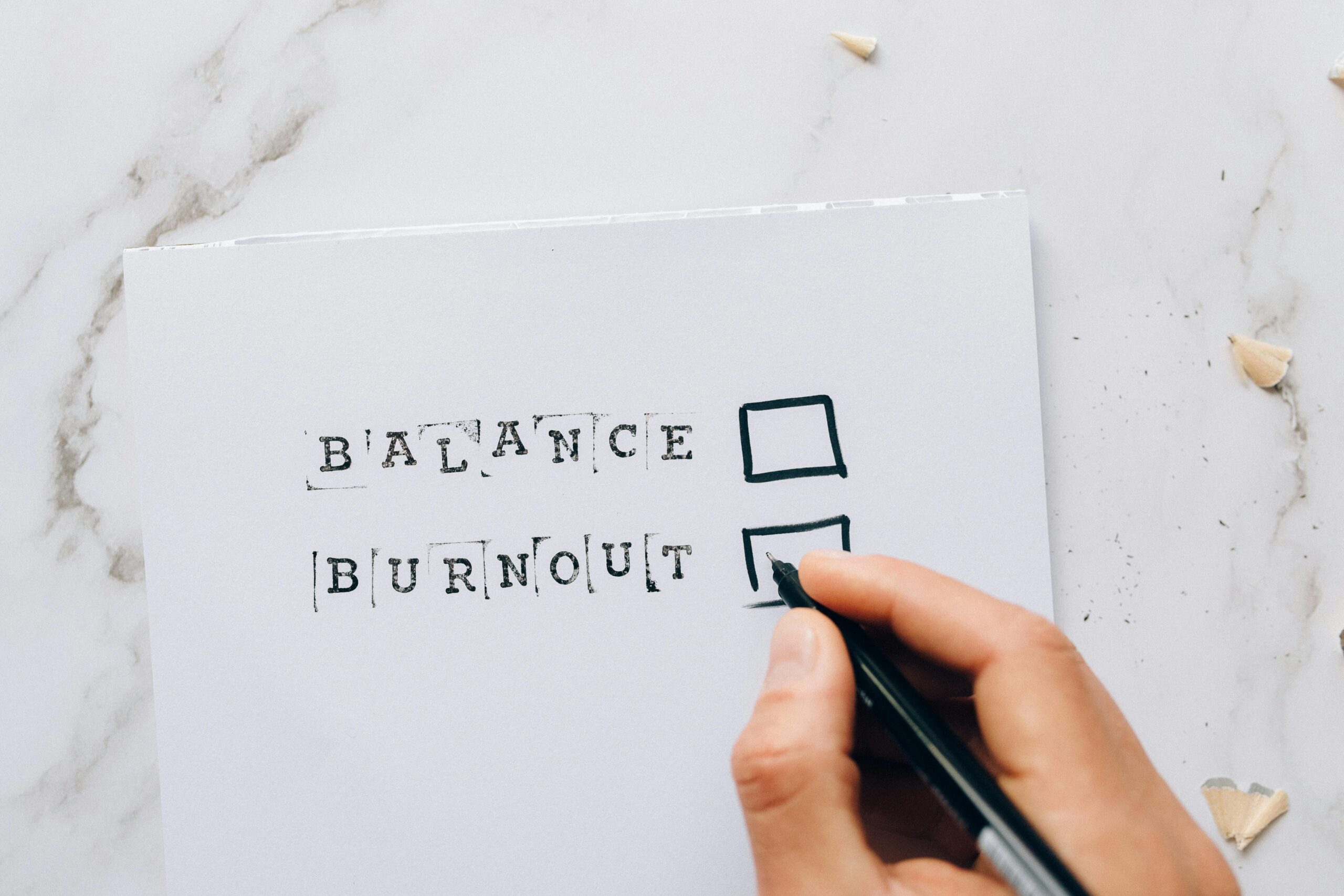In today’s fast-paced world, burnout has become an all-too-common experience for many – that’s probably why you’re reading this. From the pressures of work to managing personal responsibilities, the constant demands of daily life can leave people feeling emotionally drained, mentally exhausted, and physically fatigued. At IntegroRecovery Clinic, we know how critical it is to address burnout, especially as it often intersects with mental health and addiction. This blog post will explore what it is, its signs and symptoms, and what you can do to recover and reclaim balance in your life.
What Is Burnout?
Burnout is a state of chronic physical and emotional exhaustion caused by prolonged stress. It most commonly occurs in high-stress environments, such as workplaces, but it can also develop in personal and caregiving relationships. While everyone experiences stress, burnout occurs when that stress is prolonged, unmanaged, and begins to interfere with your ability to function normally.
Though it is not classified as a mental health disorder, it often contributes to or worsens existing mental health conditions, such as depression and anxiety. In some cases, it may lead to unhealthy coping mechanisms, including substance misuse, which can further complicate recovery.
Common Causes of Burnout
Understanding the causes of burnout is essential to preventing and addressing it. Several factors may contribute to it, but the most common include:
1. Work-Related Stress
One of the most prevalent causes of burnout is workplace stress. Long hours, demanding workloads, lack of control over tasks, and insufficient support can all contribute to feeling overwhelmed. This is especially common in high-pressure jobs like healthcare, law, and education.
2. Personal Responsibilities
Burnout can also result from balancing multiple personal responsibilities. Caring for children, aging parents, or loved ones with chronic illnesses, while managing household duties, can lead to emotional exhaustion. When personal and professional demands collide, it increases your risk.
3. Caregiver Burnout
For those who provide care to others, caregiver burnout is a serious issue. Caring for someone with a long-term illness or disability can be physically and emotionally draining. Over time, the caregiver may neglect their own well-being, leading to burnout.
4. Chronic Stress and Lack of Support
Prolonged stress without relief or support can cause individuals to feel isolated and drained. When people don’t have the tools to manage stress effectively or a support system to rely on, they are more likely to experience burnout.
Signs and Symptoms of Burnout
Recognizing burnout is the first step toward addressing it. While it affects everyone differently, some common signs and symptoms can signal it’s time to take action.
1. Emotional Exhaustion
Feeling constantly drained or overwhelmed is one of the hallmark symptoms of burnout. Emotional exhaustion makes it difficult to engage with work, family, or friends, and can lead to feelings of cynicism or detachment.
2. Physical Fatigue
Burnout doesn’t just affect mental and emotional health; it also manifests physically. You may feel tired all the time, even after a full night’s sleep. Headaches, muscle pain, and digestive issues are also common physical symptoms.
3. Reduced Performance
Burnout can significantly impact your productivity and work performance. You may struggle to concentrate, forget important tasks, or feel unmotivated to complete your work. Over time, this can lead to frustration with yourself and your job.
4. Isolation
Burnout can cause people to withdraw from social interactions. You may feel like you don’t have the energy to engage with friends or family, leading to isolation and further emotional distress.
5. Mental Health Issues
Burnout often overlaps with other mental health conditions, such as anxiety and depression. If left unchecked, it can exacerbate these conditions, making recovery more challenging.
Burnout and Mental Health: How They Interconnect
While burnout is not a clinical diagnosis, its effects on mental health are significant. Prolonged burnout can lead to depression, anxiety, and even addiction. For example, someone experiencing burnout might turn to alcohol or other substances as a way to numb feelings of stress or frustration. Unfortunately, this only worsens the underlying issue and can lead to substance use disorders.
In addition, burnout can increase feelings of helplessness or worthlessness, making it harder for individuals to seek help or break free from the cycle of stress. This is why it’s important to address this early and seek appropriate support before it leads to more severe mental health problems.
How to Prevent and Address Burnout
Preventing burnout requires recognizing stressors in your life and taking proactive steps to manage them. Here are some strategies to help prevent burnout from taking hold:
1. Set Boundaries
One of the most effective ways to prevent burnout is by setting clear boundaries, both at work and at home. Learn to say “no” when necessary and prioritize tasks that align with your well-being. Setting limits on how much time you spend on work or caregiving responsibilities can reduce feelings of overwhelm.
2. Practice Self-Care
Engaging in regular self-care activities is essential for maintaining mental and physical health. This might include exercise, meditation, hobbies, or simply taking time to rest. Prioritizing self-care helps replenish your energy and improves your resilience to stress.
3. Seek Support
Having a strong support system can make a significant difference when managing stress. Don’t be afraid to lean on friends, family, or colleagues for help. Talking about your feelings and experiences can alleviate emotional burdens and help you gain perspective.
4. Consider Professional Help
If you’re already experiencing burnout, seeking professional support may be necessary. Therapists and counselors can provide valuable tools and techniques to manage stress, reduce emotional exhaustion, and develop healthier coping strategies. At IntegroRecovery Clinic, we specialize in providing mental health services tailored to the needs of our patients, including those dealing with it and its effects on addiction.
There are many valuable resources out there to assist in your journey, including NAMI and SAMHSA for both mental health and addiction care support.
How IntegroRecovery Clinic Can Help
At IntegroRecovery Clinic in Edina, MN, we understand that burnout can have a profound impact on both mental health and addiction. Our team is dedicated to helping individuals identify signs, and providing them with the support they need to recover.
1. Comprehensive Mental Health Assessments
Our clinic offers comprehensive mental health assessments to determine the extent of your burnout and identify any co-occurring mental health or substance use disorders. This helps us create a personalized treatment plan that addresses your unique needs.
2. Individualized Treatment Plans
We believe that no two people experience burnout the same way. That’s why we create individualized treatment plans that focus on your specific challenges, whether they involve work-related stress, caregiver fatigue, or personal responsibilities. Our approach ensures that you receive the care and support you need to regain control of your life.
3. Therapy and Counseling
At IntegroRecovery Clinic, we offer various forms of therapy, including cognitive-behavioral therapy (CBT), which helps individuals reframe negative thought patterns and develop healthy coping strategies. Therapy provides a safe space to discuss your experiences and emotions while working toward a more balanced and fulfilling life.
4. Support for Co-Occurring Disorders
If burnout has led to or exacerbated mental health issues or addiction, our clinic offers specialized treatment for co-occurring disorders. By addressing both the burnout and any related conditions, we help you achieve long-term recovery and improved overall well-being.
When to Seek Help
Recognizing the signs of burnout early can prevent it from escalating into more serious health problems. If you’re experiencing persistent exhaustion, feelings of detachment, or an inability to cope with daily tasks, it may be time to seek professional help.
At IntegroRecovery Clinic, we offer compassionate, evidence-based care to help you manage it and regain your quality of life. Whether you’re facing burnout due to work, personal responsibilities, or caregiving, we’re here to support you on your journey toward mental and emotional wellness.
Conclusion: Take Control of Burnout Before It Takes Control of You
Burnout is more than just feeling tired—it’s a serious issue that can have long-term effects on your mental health, relationships, and overall well-being. At IntegroRecovery Clinic in Edina, MN, we’re here to help you recognize the signs and develop strategies to address it before it leads to more severe problems, such as addiction or depression.
Don’t let burnout control your life. Take the first step toward recovery by contacting IntegroRecovery Clinic today – below.




Comments are closed